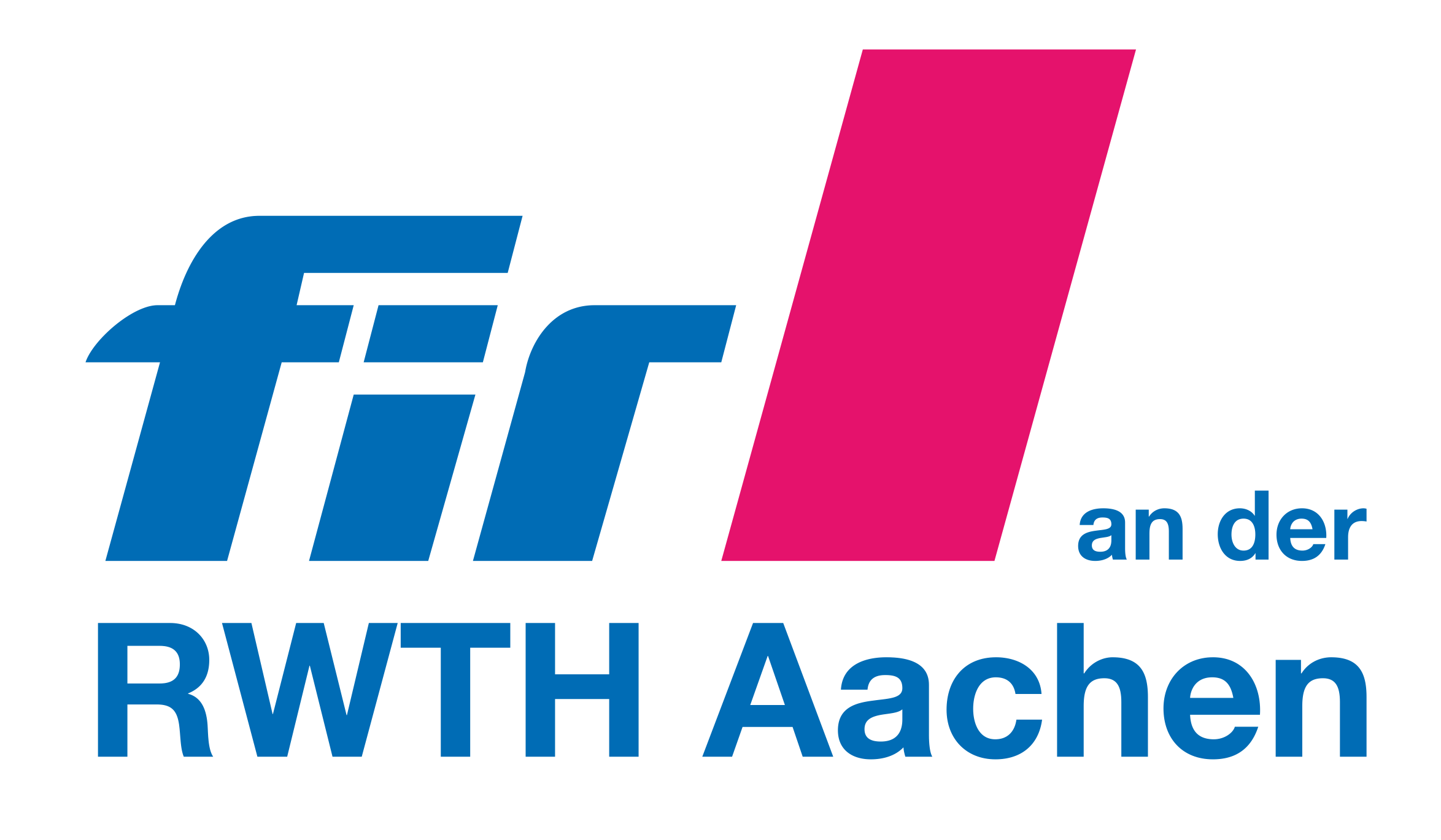Production Control
Information-Based Coordination of Production Orders
The Production Control unit investigates concepts of production control in combination with methods of data analysis and Industrie 4.0. The term "production control" refers to the transfer of the principle of the control loop to the planning and control of production orders. The control system attempts to return the system to a stable state and to keep possible effects of malfunctions as low as possible and, if necessary, to reverse them.
The concept of production control
Regardless of whether a company manufactures individual customer orders or series products: With increasing variant diversity, shorter product life cycles, and decreasing batch sizes, the number of decisions to be made on the shop floor is increasing. This is due to deviations and malfunctions in increasingly complex production systems and networks. We develop and investigate strategies for coping with this flood of decisions, taking into account current technological developments. The vision is to set up a production control system, i.e. to link data acquisition and data analysis with production control concepts. This concept takes its cue from the control cycle and extends control by a component in order to stablilize the processing and completion of production orders. The effects of a possible malfunction is thus to be minimized. The concept is targeted at the areas of scheduling, i.e. the dispatch of orders according to various criteria, work preparation, personnel resource planning, and production controlling. The work of these departments is characterized by a continuous evaluation and monitoring of the actual state compared to the target state. Any identified deviations are automatically taken into account in future decisions, where possible, and may lead to changed input data for future planning. In addition to the PPS software for production planning and controlling, in recent years, Manufacturing Execution Systems have established themselves on the market, which contain a range of tools for monitoring and controlling production orders as well as for the preparation of data.
Production Control: Research Fields
The unit's research activities can be classified with the help of an ordering framework with two dimensions: On the one hand, the applicability and further development of established concepts for order monitoring and production control are being investigated. On the other hand, regarding production control, FIR investigates process models and application cases for the evaluation of manufacturing order data. A synthesis of these research streams is to result in a model of production control.

Contactperson
Further Information
Position paper [German]
Whitepaper [German]
„Digital Connected Production“
Publications [German]
UdZ Article: „Planspiel zur Technologieerprobung im ERP-Innovation-Lab“
UdZ Article: „Die Zukunft der Servicerobotik in der Logistik“
The starting point of our research is the creation of a high-resolution representation of order progress and resource availability to achieve “high-resolution order monitoring”. In this context, ‘high-resolution’ means both to identify the necessary level of detail – depending on the decisions to be made and the available options for action – as well as the required temporal properties. The concept of real-time capability has to be defined according to the tasks at hand: While delays in the millisecond range are necessary for technical process monitoring, for production control, the term is to be understood more in the sense of a delay for recording defined events. In addition to the determination of data requirements, the design of a process-integrated data acquisition system in the sense of a cyberphysical system is also one of the relevant topics. The completed research projects ProSense and BigPro have contributed to developments in this area.
Drawing on an as comprehensive a model as possible of processes in production, the concept of data-supported production control describes the linking of available data with automated decision-making. For this purpose, the various deviations that occur as well as feasible solution options are described as precisely as possible. These decisions are then taken into account in the process design. They do not deliver feedback which results in re-planning activities, but are to be taken into account in future planning. A popular example of such a control loop is the Kanban method, which, however, requires a high degree of robustness against fluctuations in demand and the number of variants. In application-oriented research projects, the process limits are to be extended by the application of high-resolution data. In the iProd project we investigate potential use cases of data analytics and AI in this field.
In addition to using the data for production control, new methods of data analysis and the availability of suitable software solutions with improved usability also offer potential for the evaluation of data. Against the backdrop of decreasing batch sizes and the multitude of new products and product variants, traditional statistical data preparation methods are reaching their limits. There is a need for a new Production Analytics, which recognizes patterns – and thus similarities – in supposedly different orders and malfunction situations. This applies, above all, for causal research in the case of deviations. We are therefore actively researching the development of methods for the evaluation of feedback data from production. This includes the definition of requirements on the data as well as the selection of suitable applications and procedures for analysis and preparation of results. This is also part of the iProd project and the completed BigPro project.
The synthesis of the findings from the fields of production analytics and data-supported production control finally leads to production control in terms of data-driven decision support and elements of automated decision-making processes. Deviations in production are continuously examined for patterns in order to derive suitable options for action. In addition to decision-making, the involvement of employees is indispensable for the implementation of such a concept. Decisions should therefore be prepared to make them as comprehensible as possible. The APACHE project and a doctoral thesis, titled “Adaptive Deviation Management in Production Control for Small Batches,” make a valuable contribution in this respect.
Conclusion Production Control
The concept of production control as envisaged by the unit provides methods with which the production processes can be continuously monitored and influenced - ideally at the operational, work process level. Deviations are detected and systematically compensated. Particular emphasis is placed on the compensation process. The aim of our research activities is to develop and consolidate suitable concepts and solutions for mastering production order processing in the increasingly turbulent environment of manufacturing companies. The development and transfer of results are carried out in the interest of the users, i.e. both by providers of operational application systems and by the manufacturing companies themselves.


